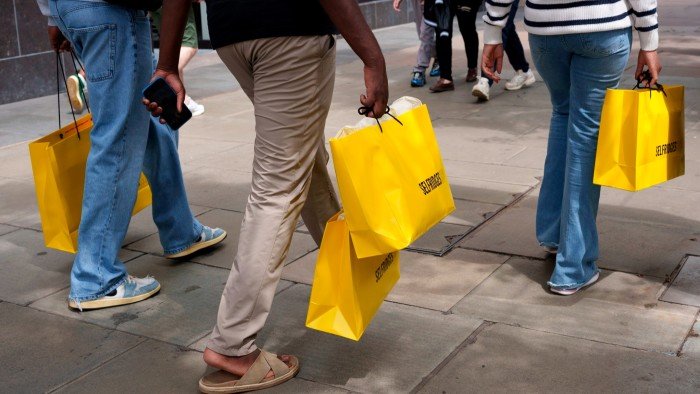Consumer confidence in the UK rose for the second consecutive month in June, supported by a more positive economic outlook, according to a closely watched survey that raises hopes of stronger household spending.
The GfK consumer confidence index — a measure of how people view their personal finances and broader economic prospects — rose two points to minus 18 in June, the research group said on Friday.
It followed a three-point improvement in May and took the score to levels last seen at the end of 2024, before US President Donald Trump announced tariffs on most American imports. However, it remained well below the 2015-19 average of minus 5.6.
Neil Bellamy, consumer insights director at GfK, said the rise in confidence was “driven by improvements in how consumers see the general economy”.
But, he warned, sentiment remained “fragile”, citing rising oil prices linked to conflict in the Middle East and continued tensions over tariffs. “Now is certainly not the time to hope for the proverbial ‘light at the end of the tunnel’,” he said.

Policymakers monitor consumer confidence as an indicator of future spending, which affects economic growth.
Consumer spending has remained weak over the past year despite wages rising faster than inflation. Household consumption contributed only 0.1 percentage point to the 0.7 per cent overall economic growth in the first three months of the year.
With interviews conducted in the first half of June, the GfK index showed that expectations for the general economic outlook over the next 12 months rose five points to minus 28. However, the index tracking respondents’ views of their future personal finances remained unchanged at 2.
Improved economic data for the first quarter and new UK-US trade agreements, which reduce the risk posed by Trump’s import tariffs, have led economists to raise their growth forecasts.
Analysts expect UK economic growth of 1 per cent in 2025, up from 0.7 per cent they forecast in April, according to data by Consensus Economics, a company that averages leading forecasters.
A separate survey by the British Retail Consortium this week also indicated that overall sentiment is improving.
The findings showed that the proportion of people expecting the economy to improve over the next three months rose to 34 per cent in June, from 28 per cent in May and 24 per cent in April. Spending intentions also increased.
Helen Dickinson, chief executive of the British Retail Consortium, said younger generations had registered “the biggest improvement” in both their economic outlook and personal finance expectations. This may partly reflect a rise in the minimum wage in April, she noted.





